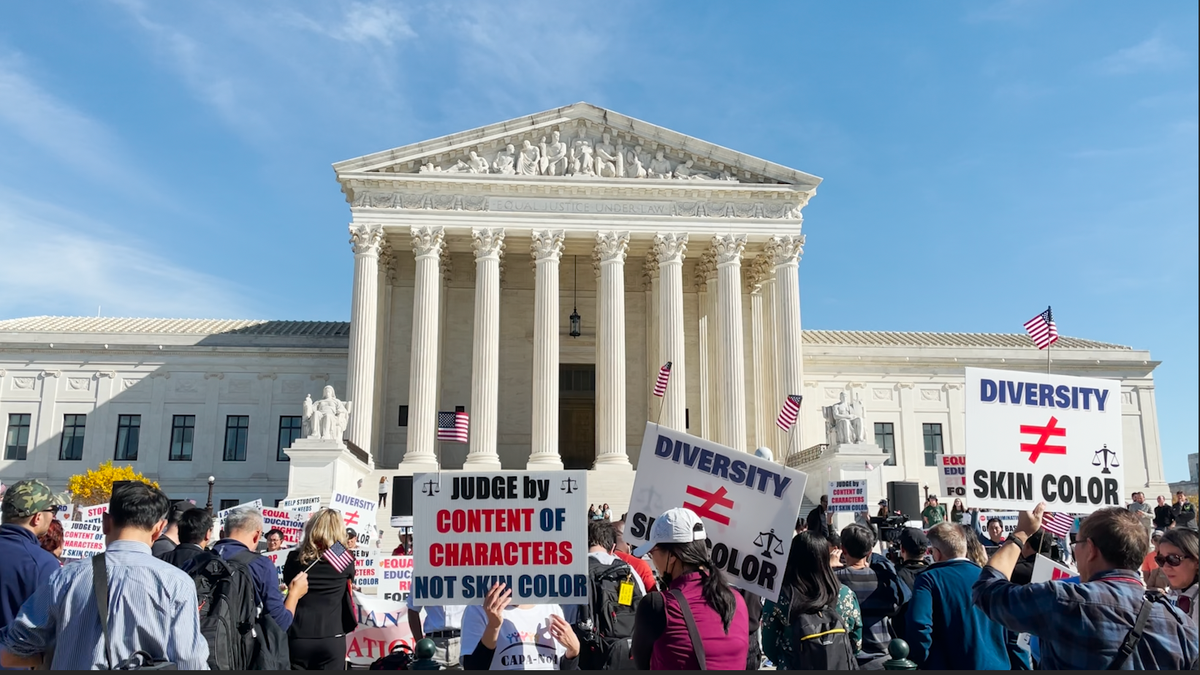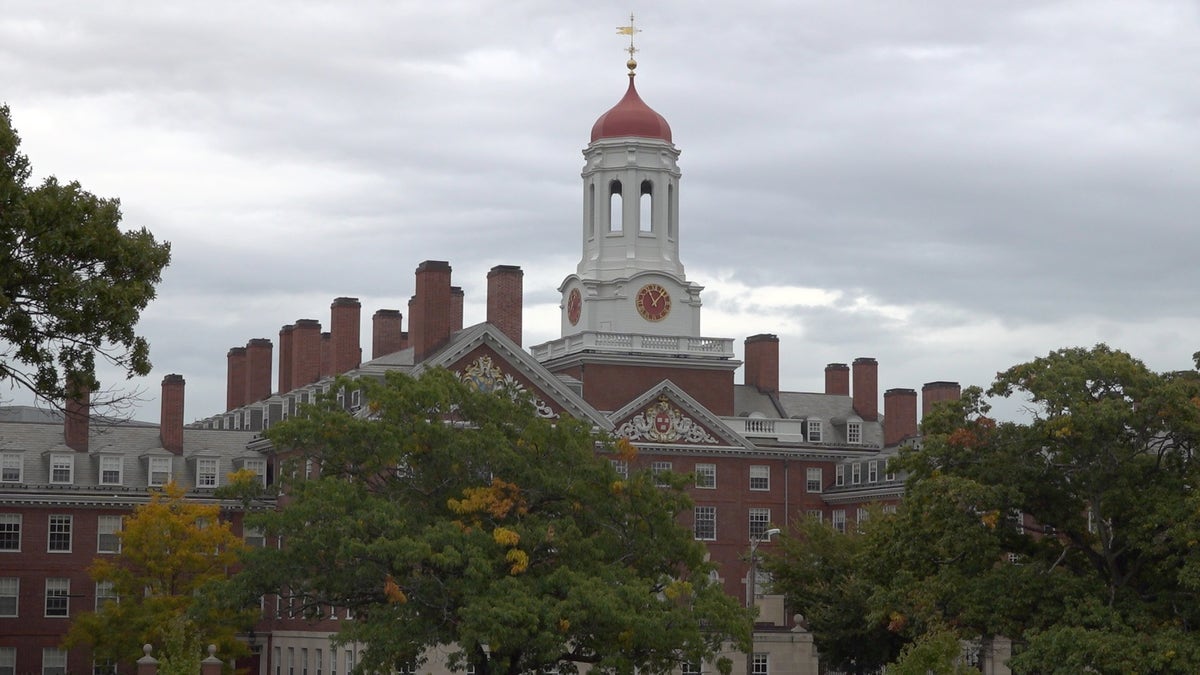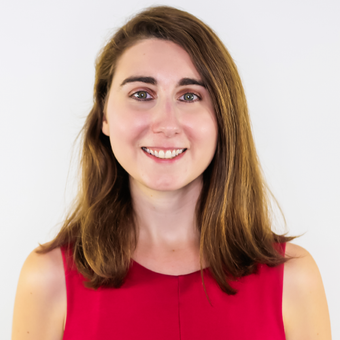Asian American groups rally before the Supreme Court to protest affirmative action
Asian American equal rights groups rallied in support of two landmark affirmative action cases the Supreme Court will be hearing on Monday.
Virginia mother and education activist Asra Nomani shared her observations with Fox News Digital from inside the Supreme Court during oral arguments on two significant affirmative action cases.
The long-anticipated cases deal with the admissions policies of Harvard and the University of North Carolina at Chapel Hill. Students for Fair Admissions (SFFA) sued both schools, alleging their policies discriminate against Asian-American applicants by using race as a factor in the admissions process.
Nomani, an immigrant who came to the U.S. from India when she was 4 years old, described being on an "emotional roller coaster" throughout the proceedings.
"This battle that we're facing on the college university level, it's just one front of this wider assault on Asian Americans," Nomani told Fox News Digital on Tuesday.

Equal Education Rights for All rally in Washington, D.C., on Sunday. (Fox News Digital)
Nomani said the liberal justices who appeared sympathetic to the universities "didn't want to acknowledge that a problem exists."
"And I listened to the questions of three justices that are like-minded with those two universities, along with the solicitor general," she said. "I just felt as if Asians were erased from the discussion… In the social justice movement, diversity doesn't include Asians and we end up erased so much from the evaluation of what is best for America."
The mother said she felt heartened, however, by what she heard during the Harvard case. SFFA lawyer Cameron T. Norris had previously alleged that Harvard discriminates against Asian American applicants by assigning them "significantly lower personal ratings," which measures applicants’ character, than any other student group.
"And then when Harvard came up with the case and finally, we were emboldened because Justice [Samuel] Alito and [Neil] Gorsuch, as well as the Chief Justice [John] Roberts, they were just on fire about the fact that this personal score was a number that was assigned at a lower value to Asian students than it was to other students," Nomani said.
A TIMELINE OF SUPREME COURT CASES ON AFFIRMATIVE ACTION IN COLLEGE ADMISSIONS

The Supreme Court cases deal with the admissions policies of Harvard and the University of North Carolina at Chapel Hill.
In his argument on behalf of Harvard, former U.S. Solicitor General Seth P. Waxman noted that two lower court rulings concluded that the college did not discriminate against Asian applicants.
"There was consistent, unambiguous and convincing testimony there was no discrimination in the admissions process in general, and the personal rating in particular," Waxman said.
But Justice Alito appeared to challenge Waxman.
"The record shows that Asian student applicants get the lowest personal scores of any other group," Alito responded. "It has to be one of two things: It has to be that they really do lack integrity, courage, kindness, and empathy to the same degree as students of other races, or there has to be something wrong with this personal score."
Waxman said the personal rating is assigned by an application’s first reader "just as a matter of triage," but "fades into the background" once other admissions officers review the application. He added that it is "not the basis of admissions decisions."
RALLYGOERS PLEAD WITH SUPREME COURT TO END RACE-BASED ADMISSIONS: ‘DO NOT SCAPEGOAT ASIANS’
Hearing the exchange, Nomani said it seemed the Harvard lawyer did not recognize "the impact of that kind of numbers game on human beings."
"There is no empathy or compassion extended to the fact that it is devastating and demoralizing to any student, to become a number dismissed," she said. "And that is the legacy of racism in other forms that we have fortunately said is unacceptable and illegal. So reducing kids to numbers is clearly a game in admissions and assigning Asian kids lower numbers, to avoid their ‘overrepresentation’ in colleges and universities is clearly the calculated outcome."

Students for Fair Admissions (SFFA) sued Harvard and UNC-Chapel Hill, alleging their policies discriminate against Asian American applicants by using race as a factor in the admissions process. (Lance King)
"It was clear that Justice Alito, Justice Gorsuch and Justice Roberts are outraged by the personal score and the fact that Asian students today hide their personal identity in order to just survive in America," she continued. "And that was really great to see them reflect that back as questions to the Harvard lawyer… But it was clear that hit a nerve with those justices."
CLICK HERE TO GET THE FOX NEWS APP
By day's end, Nomani said she saw reason to be optimistic.
"I walked out of the Supreme Court really emboldened and very optimistic, but not just about the vote count, but the fact that the majority of the justices actually see the problem, like they actually see this community that has many of the people who have sacrificed family and lives and homes to call America home and then raise their children here. And I felt like we were finally seen," she said.
Nomani said she was also inspired by the hundreds of people — many of whom were Asian Americans — who showed up a rally Sunday to protest race-based admissions.
"But many, many people in Asian community, you know, fear speaking out for fear of losing jobs, losing admission into colleges because that the tide is so much against them," she told Fox Digital.
The activists' presence was "really important," Nomani continued, because it is a community in which many "have fled tyranny and countries and governments where you speak truth to power and your dad are imprisoned." A lot of those parents, she said, had to overcome their own "cultural fears."
Some who have defended the Harvard and UNC-Chapel Hill admissions policies argue they are a necessary tool to maintaining academic fairness.
They are a "modest tool that promotes more neutral, objective, and merit-based admissions," Boston University Professor Jonathan Feingold recently told Fox News Digital. Harvard students who rallied in support of the policies also said they help in terms of campus diversity.
Nomani is also a co-founder of the group Coalition for TJ, a group consisting of parents, students and community members "advocating for diversity and excellence" at Thomas Jefferson High School for Science and Technology. A federal judge gave the group a win in February after ruling that Fairfax County school officials violated the law by changing admissions requirements at the school to intentionally reduce the number of Asian American students enrolled. The school board filed an appeal, however, and the case is now with the fourth Circuit Court of Appeals.
Nomani predicted UNC will lose its case by a vote of 6-3, while Harvard will lose 6-2. Justice Ketanji Brown Jackson recused herself from the latter case as a member of the Harvard University Board of Overseers.
Fox News' Kelsey Koberg and Kristine Parks contributed to this report.











































